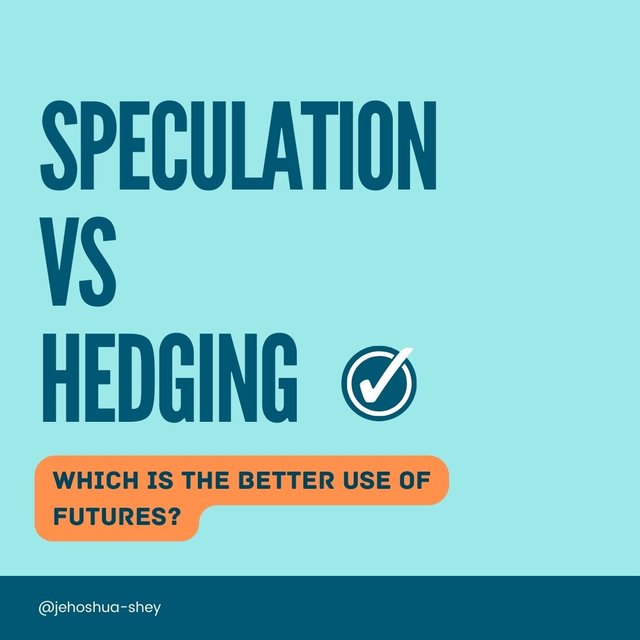
Futures are a popular financial instrument these days and are mostly traded based on speculations. Most traders have found it useful in profiting from adverse market conditions like a dip in prices. Crypto traders especially are mostly given to speculating with varying amounts of leverage, the next direction of the market, and most popular among the tools they use is - futures.
What is futures
Futures can be explained as financial contracts that obligates the contracting parties to deal on a particular asset on a particular date in future and at a pre-determined price. Among the contracting parties is usually a buyer and a seller. At the expiration of the contract, both parties are under obligation to deal - the buyer must buy and the seller must sell.
However, if at the expiration of the futures contract the buyer is not interested in the underlying assets, there's a possibility of cash settling the contract. The underlying assets can be sold and used to settle the buyer after it must have been adjusted for fees and charges.
This provision of cash-settling opened the opportunity of buying or selling a futures contract without interest in the underlying assets. An investor can enter into a futures contract just because they think the price of the underlying assets will go a certain way in the future and they want to benefit form it what that happens, no interest in the asset whatsoever. This is know as speculation and it is one of the uses of futures
Companies and/or big corporations are more likely to hedge using futures contracts. They already hold or use the underlying assets and want to lock in the price, so they decide to open a futures contract position for that underlying asset. They either buy or sell, depending on the position they hold in the underlying asset - usually they open an equal and opposite position with respect to their initial position in the underlying asset.
Hedging vs Speculation
Unlike speculative users however, their assets are 'to be delivered physically' at the expiration of the contract. Hedging enables users to compensate for any loss incurred when holding or using the underlying assets for that period as the futures contract position is a mirror reflection of their normal position in the underlying assets.
For instance, if they have the asset and want to sell at a future date, they open a sell position for the same amount of the asset in a futures contract that will expire around the time they intend to sell. When the time to sell their asset comes, if the price has dropped, they would have some losses. But then, the futures contract will also have reduced in price and they can buy it back for less than they sold it. The profit from the futures contract mitigates the loss incurred from selling the underlying asset.
The assets is usually not delivered, but is threatened to be, in order to make the price of the asset on spot and in futures converge.
Hedging takes away the risk when dealing with a particular asset while speculation adds risk when there is no existing risk.
So I would like to have your opinion dear reader. Which is the better use of futures and why?